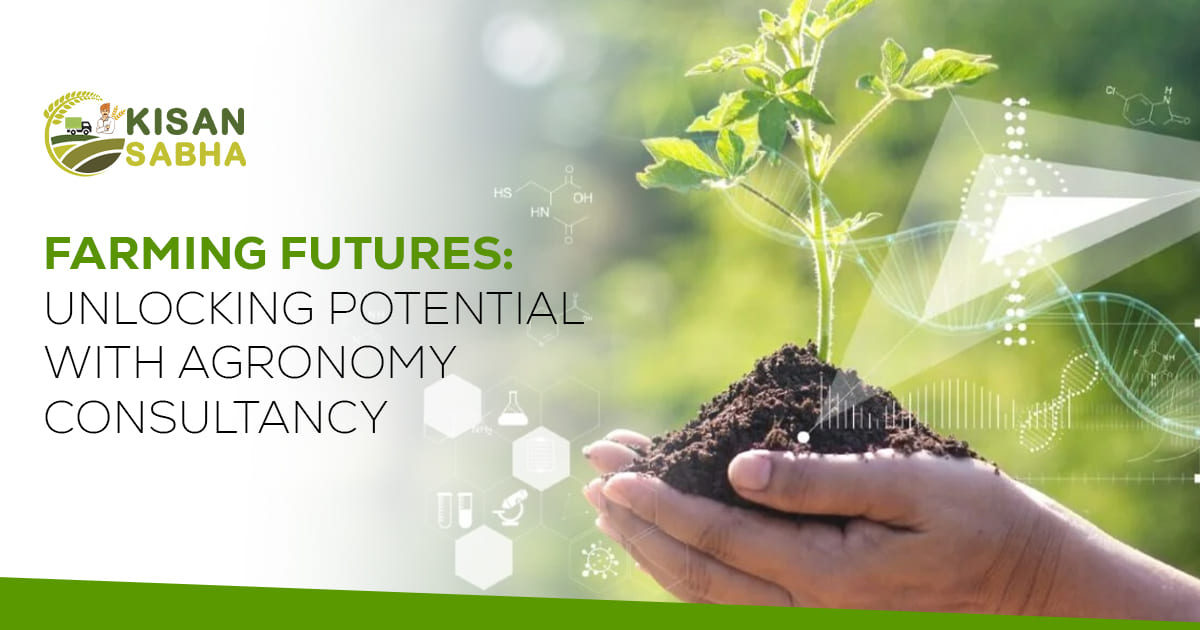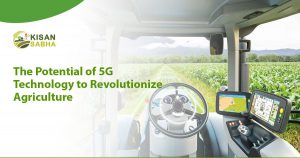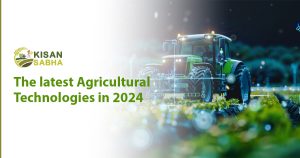Agriculture has been the backbone of human civilization, providing sustenance and livelihood for millennia. In today’s rapidly evolving world, the agricultural landscape faces numerous challenges, including population growth, climate change, and dwindling resources. Technology plays a pivotal role in tackling these challenges and ensuring sustainable agricultural practices. Agronomy consultancy, a specialized advisory service that combines agricultural science with technology, emerges as a critical tool in empowering farmers with the knowledge and tools they need to thrive in the modern era. In this article, we explore the significance of agronomy consultancy and its role in harnessing technology for the benefit of farmers.
Understanding Agronomy Consultancy
Agronomy is the science of soil management and crop production, encompassing a range of disciplines, including soil science, plant genetics, pest management, and sustainable agriculture. Agronomy consultancy, also known as agricultural consulting or agronomic advisory services, involves expert agronomists collaborating with farmers to optimize their agricultural practices.
Importance of Agronomy Consultancy:
Enhancing Productivity and Efficiency:
Agronomy consultants bring a wealth of knowledge and experience to the table. By analyzing the specific conditions of a farmer’s land, crop choice, and prevailing climate, they can provide tailored recommendations for planting schedules, irrigation methods, fertilization, and pest control. These insights lead to enhanced productivity and resource efficiency, enabling farmers to maximize their yields while minimizing input costs.
Adoption of Precision Farming Techniques:
Precision farming leverages technology, such as GPS mapping, remote sensing, and data analytics, to optimize farm management. Agronomy consultants help farmers integrate these cutting-edge technologies into their operations. However, this will allow them to make informed decisions based on real-time data. Precision farming ensures the precise application of resources like water, fertilizers, and pesticides, reducing waste and environmental impact.
Climate Change Adaptation:
Climate change poses significant challenges to agriculture, with extreme weather events, rising temperatures, and irregular rainfall patterns becoming more frequent. Agronomy consultants can guide farmers on selecting climate-resilient crop varieties, implementing sustainable land management practices, and adopting water-saving irrigation techniques. These measures aid in adapting to changing climate conditions and safeguarding agricultural production.
Sustainable Agriculture Promotion:
Agronomy consultants play a crucial role in advocating and promoting sustainable agricultural practices. By emphasizing practices such as crop rotation, cover cropping, integrated pest management, and conservation tillage, consultants help farmers reduce soil erosion, conserve water, and preserve biodiversity. Indeed embracing sustainable agriculture ensures the land’s long-term health and secures future generations’ livelihoods.
Access to Market Information:
In addition to technical expertise, agronomy consultants provide farmers with valuable market insights and trends. By staying updated on consumer preferences, pricing dynamics, and market demand, farmers can align their production choices with market requirements, increasing their profitability and market competitiveness.
Technology Adoption:
The agricultural sector is experiencing a technology-driven transformation, with innovations such as drones, smart sensors, and agricultural machinery revolutionizing farming practices. Agronomy consultants bridge the knowledge gap, helping farmers understand, adopt, and integrate these technologies into their daily operations. This technology-driven approach enhances the overall efficiency and productivity of farming activities.
Financial Planning and Risk Management:
Farming involves significant financial investments, and farmers must navigate various risks, including crop failure, price fluctuations, and market uncertainties. Agronomy consultants assist farmers in developing robust financial plans, risk management strategies, and contingency plans to mitigate potential losses and secure their financial well-being.
Capacity Building and Education:
Agronomy consultancy imparts technical advice and focuses on farmer education and capacity building. Through workshops, training sessions, and demonstrations, agronomy consultants empower farmers with the necessary skills and knowledge to apply modern agricultural practices independently.
Also Read:- Enhancing Agricultural Productivity in India
Conclusion
Agronomy consultancy is an indispensable resource for farmers seeking to embrace technological advancements and achieve sustainable agricultural growth. By collaborating with expert agronomists, farmers can access cutting-edge insights, data-driven recommendations, and market intelligence. Eventually, this will enhance their productivity, profitability, and environmental stewardship. Technology is reshaping the face of agriculture, and agronomy consultants act as the bridge, connecting farmers with the tools they need. However, these tools help in navigating this transformative journey successfully.





